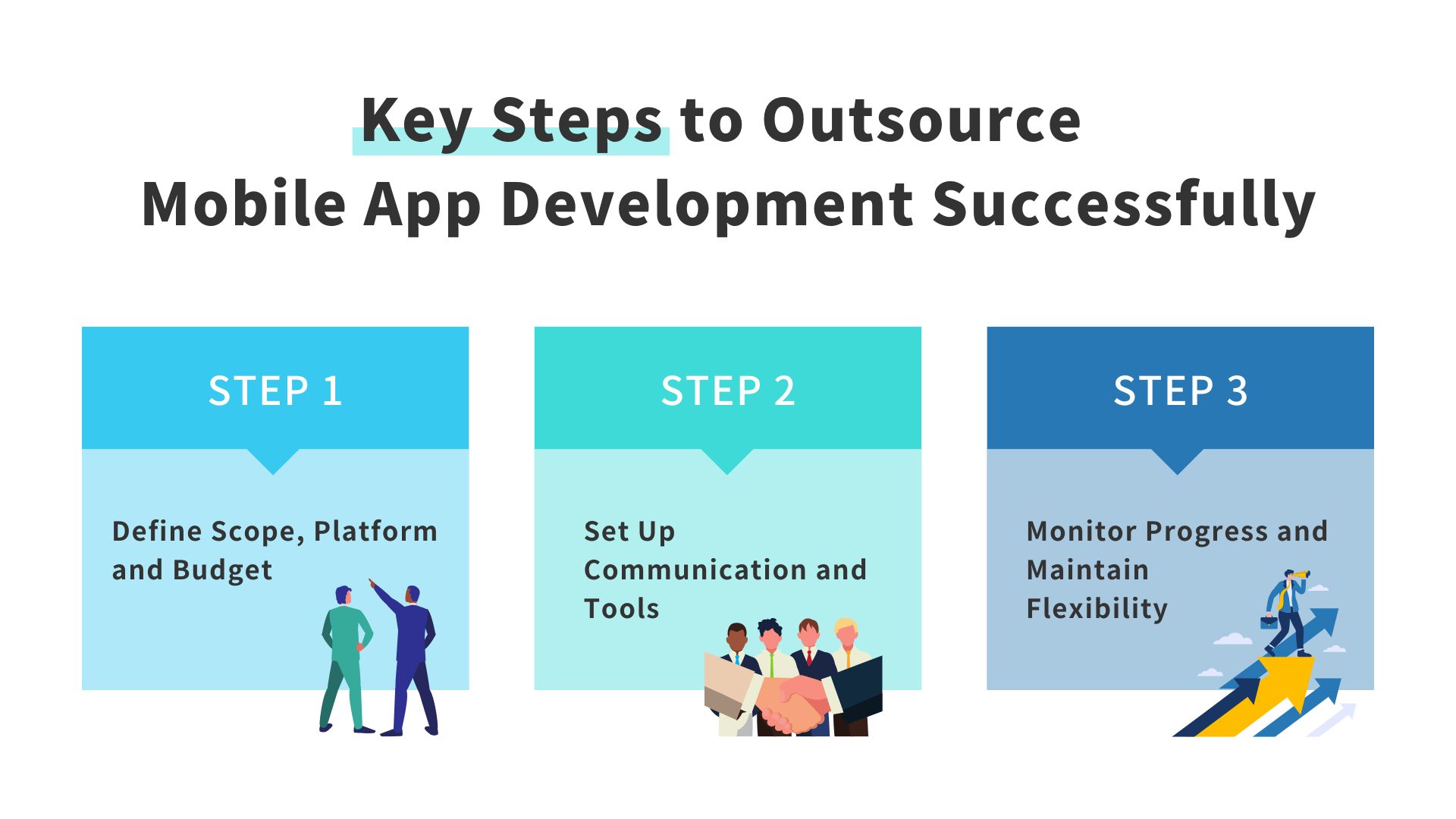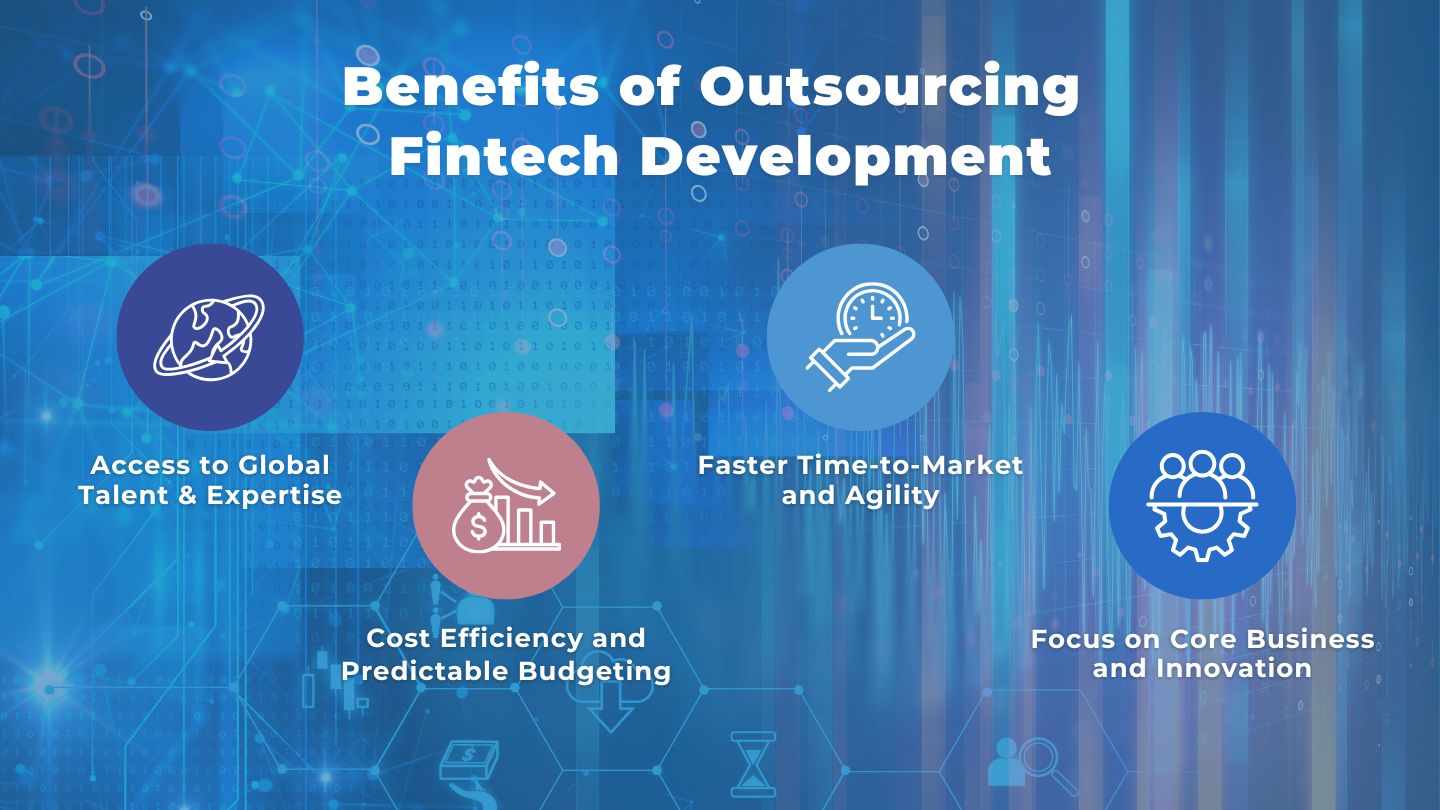Outsourcing mobile app development has become a proven strategy for businesses looking to bring high-quality applications to market without the overhead of building an in-house engineering team.
But choosing the right partner isn’t just about saving money; it’s about finding a team that understands your product vision and has the software engineering capabilities to make it a reality.
At IVC, we’ve worked with startups and SMEs to deliver scalable, user-centric mobile applications through flexible and transparent outsourcing models.
In this article, we’ll walk you through:
- What outsourcing mobile app development really involves
- The pros, cons, and risks you need to know
- How to evaluate and select a trustworthy development partner
- Best practices to manage outsourced projects effectively
Whether you’re launching your first app or looking to improve development efficiency, this guide will help you make informed decisions and avoid costly mistakes.
Ready to get started?
Contact IVC for a free consultation and discover how we can help your business grow online.
Contact IVC for a Free ConsultationWhat Does It Mean to Outsource Mobile App Development?

Outsourcing mobile app development means working with an external software company to design, build, and maintain your app instead of relying only on in-house engineers.
This approach gives businesses access to global talent, lower costs, and faster delivery.
The mobile app development market itself continues to expand at a rapid pace. According to Straits Research(※), the global market is projected to grow from USD 302.1 billion in 2025 to USD 753.34 billion by 2033, with a compound annual growth rate (CAGR) of approximately 12.1%.
This growth is driven by the widespread adoption of smartphones, the deepening reliance on mobile solutions across sectors like banking, financial services, insurance, e-commerce, and healthcare, as well as the overall pace of digital transformation.
At the same time, high development costs remain a challenge. Factors such as operating system or platform choice, feature complexity, and vendor location can create significant cost variations, which can make advanced apps more costly to develop.
For many companies, outsourcing provides a smart solution, which can be seen as a practical and strategic path forward.
Frequent updates to operating systems and the growing variety of devices make it increasingly challenging for in-house teams to keep up. Outsourcing to an experienced partner can help companies stay current without overburdening internal resources.
Ready to get started?
Contact IVC for a free consultation and discover how we can help your business grow online.
Contact IVC for a Free Consultation
※Source: Straits Research – Mobile App Development Market Report
In-house vs Outsourcing: Key Differences
Building apps in-house requires hiring, training, and managing developers—a process that demands time, money, and long-term commitment.
Outsourcing, on the other hand, gives companies access to global talent pools without the overhead. The key difference lies in scalability and flexibility: outsourced teams can adapt faster to changing project needs.
Who Should Consider Outsourcing?
Startups, SMEs, and even enterprises that lack large internal engineering teams often find outsourcing beneficial.
It’s particularly effective for:
- Businesses launching their first mobile product
- Companies with limited technical expertise
- Organizations needing to scale quickly without long-term headcount growth
What Types of Mobile Apps Can Be Outsourced?
From consumer-facing apps like e-commerce platforms and social media tools to enterprise apps for internal workflow management, virtually any mobile application can be outsourced.
Popular categories include gaming apps, fintech apps, healthcare apps, and e-learning apps.
Benefits and Risks of Outsourcing Mobile App Development

Like any strategic decision, outsourcing has both advantages and challenges.
Understanding these upfront helps you prepare and maximize results.
Advantages: Cost, Speed, Expertise
Outsourcing provides access to skilled developers at a lower cost compared to hiring in-house staff. External partners bring proven experience across industries, accelerating project timelines while maintaining high quality.
Common Risks: Miscommunication, Low Quality, Delays
Without proper project management, outsourcing can lead to challenges such as unclear requirements, cultural or time-zone gaps, and unexpected delays. Some companies also risk low-quality code if vendor selection is rushed.
How to Minimize These Risks Effectively
To reduce risks, businesses should:
- Define clear project requirements and success metrics
- Establish strong communication channels and tools
- Work with partners who follow transparent development methodologies (Agile, Scrum)
- Conduct regular testing and code reviews
How to Choose the Right Mobile App Development Partner

Selecting the right outsourcing partner is the most critical step.
A reliable software company becomes an extension of your team.
What to Look for in a Reliable Software Company
When evaluating potential partners, focus on companies with a strong track record and relevant technical expertise.
Look for:
- Proven portfolio of mobile apps across industries
- Strong client testimonials and case studies
- Expertise in your required technology stack (iOS, Android, Flutter, React Native)
- Transparent pricing and project management approach
These qualities indicate that the company can deliver quality results and communicate effectively throughout the development process.
Questions to Ask During the Selection Process
Before making your decision, ask your shortlisted companies questions that help clarify their workflow and reliability.
For example:
- How do you handle communication and reporting?
- What tools do you use for project management?
- How do you ensure code quality and security?
- Can you provide references from past clients?
Asking these questions gives you insight into the company’s professionalism and helps prevent misunderstandings later.
Red Flags to Watch Out For
While reviewing potential partners, be alert to warning signs such as:
- Vague pricing or hidden costs
- Lack of portfolio or unclear past project results
- Poor communication or delayed responses
- Overpromising unrealistic delivery timelines
If you notice any of these issues, it’s best to proceed with caution or consider other options.
Key Steps to Outsource Mobile App Development Successfully

Following a structured process helps ensure smooth collaboration and high-quality outcomes.
Step 1: Define Scope, Platform and Budget
Start with clear documentation: project goals, target audience, desired features, platform choice (iOS, Android, cross-platform), and budget range.
Step 2: Set Up Communication and Tools
Agree on tools for communication (Slack, Teams), project management (Jira, Trello), and version control (GitHub, GitLab).
Regular stand-ups and status updates keep everyone aligned.
Step 3: Monitor Progress and Maintain Flexibility
Track deliverables with milestone reviews. Stay flexible to adjust scope based on user feedback, market shifts, or technical challenges.
IVC’s Approach: Software-Driven, Transparent and Scalable

At ISB Vietnam (IVC), we prioritize trust, transparency, and business alignment.
Our outsourcing models are designed to empower clients with flexibility and control.
Supporting Diverse Industries and Business Goals
We have delivered mobile apps for a wide range of industries, such as camera control, fintech, education, and utilities. Our team uses technologies like C++, Objective-C, and Java to create effective solutions for different business needs.
With over 100 experienced engineers, we offer end-to-end support, covering everything from requirements gathering to deployment and maintenance. We also have expertise in both global and Japanese markets.
Flexible Outsourcing Models Tailored to Client Needs
We offer:
- Dedicated long-term development teams
- Short-term project-based outsourcing
- On-demand technical support
Our flexible contracts allow us to adapt to client goals, budgets, and timelines while maintaining quality through agile or waterfall models.
IVC’s Mobile App Development Case Studies
IVC has delivered a wide range of mobile applications for clients across various industries, including finance, education, utilities, and technology.
Below are several representative projects that highlight our ability to deliver robust, user-focused solutions tailored to each client’s needs.
WiFi Camera Control App
An application enables users to control and view live images on QBiC cameras via Wi-Fi. It also allows users to insert images into MP4 videos or trim clips from them.
- Platforms: iOS 5.X+, ANDROID 2.2.X+ AND 4.X+
- Languages: C++, OBJECTIVE-C, JAVA, JNI
FX Client App
Developed for the finance sector, this app supports multi-exchange rates, detailed statistics, and visualization charts.
- Platforms: iOS 3.X, 4.X, ANDROID 2.2.X
- Languages: JAVA, OBJECTIVE-C
Voice Book App
Users can record their voice and embed it into the original image to create personalized image books. The app also allows uploads to YouTube, browsing and purchasing of voice books, and supports multiple languages including English, Japanese, and Korean.
- Platform: Android
- Language: JAVA
Kids Learning App
This app is designed for English learning through drawing, featuring handwriting-based drills and a server-side system to store learning history.
- Platforms: ANDROID, PHONEGAP
- Languages: HTML5, JAVASCRIPT, CSS, JAVA
SDM Launcher App
A utility app for Secure Device Management (SDM) users, allowing admins to remotely change app order and helping users launch apps and access shortcuts.
- Platform: ANDROID 7.0+
- Language: Kotlin 1.5.31
Further case studies and detailed project insights are available on IVC Case Studies.
At IVC, we value long-term relationships with our clients. Reach out to us and let’s create innovative mobile apps that drive lasting value together.
Ready to get started?
Contact IVC for a free consultation and discover how we can help your business grow online.
Contact IVC for a Free Consultation
Frequently Asked Questions (FAQ)

Have questions about outsourcing mobile app development?
Here are some of the most common inquiries we receive from clients, along with clear answers to help you make informed decisions.
How much does it cost to outsource mobile app development?
The cost of outsourcing mobile app development can vary widely depending on the app’s complexity, features, and the region of the development team.
For example, in North America, developing a mobile app may cost significantly more than in Eastern Europe or South Asia. A basic MVP might start around $5,000–$50,000, while more advanced or enterprise-level applications with complex integrations can cost over $200,000.
Source: SpaceO Technologies, Aalpha Information Systems
What platforms (iOS, Android, cross-platform) can I outsource?
All major platforms can be outsourced, including native apps (iOS, Android) and cross-platform frameworks (Flutter, React Native, Xamarin).
Can I change vendors in the middle of a project?
Yes, but it requires careful transition planning. Ensure all documentation, code repositories, and assets are handed over properly to minimize disruptions.
How can I ensure quality when outsourcing overseas?
To maintain high quality, choose partners with robust QA practices, regular testing cycles, and clear, transparent communication. Ask for demos, code samples, and client references to evaluate their work before committing.
At IVC, we combine proven QA processes with open communication and end-to-end project support.
Reach out to us to discuss how we can deliver a high-quality mobile app tailored to your needs while building a long-term partnership.
Ready to get started?
Contact IVC for a free consultation and discover how we can help your business grow online.
Contact IVC for a Free ConsultationConclusion

Choosing to outsource mobile app development is more than just a way to cut costs. It is a strategic decision that can accelerate business growth, improve flexibility, and help you deliver high-quality products to the market more quickly. The most important factor for success is finding a partner who truly understands your goals and brings technical expertise, transparency, and strong communication skills.
At IVC, we believe that successful outsourcing is built on trust, collaboration, and a clear understanding of your business needs. If you are ready to take the next step in mobile app development, talk to our team. We are here to help turn your ideas into reality.
Ready to get started?
Contact IVC for a free consultation and discover how we can help your business grow online.
Contact IVC for a Free ConsultationReference
Data and insights in this article are based on the following sources:
















